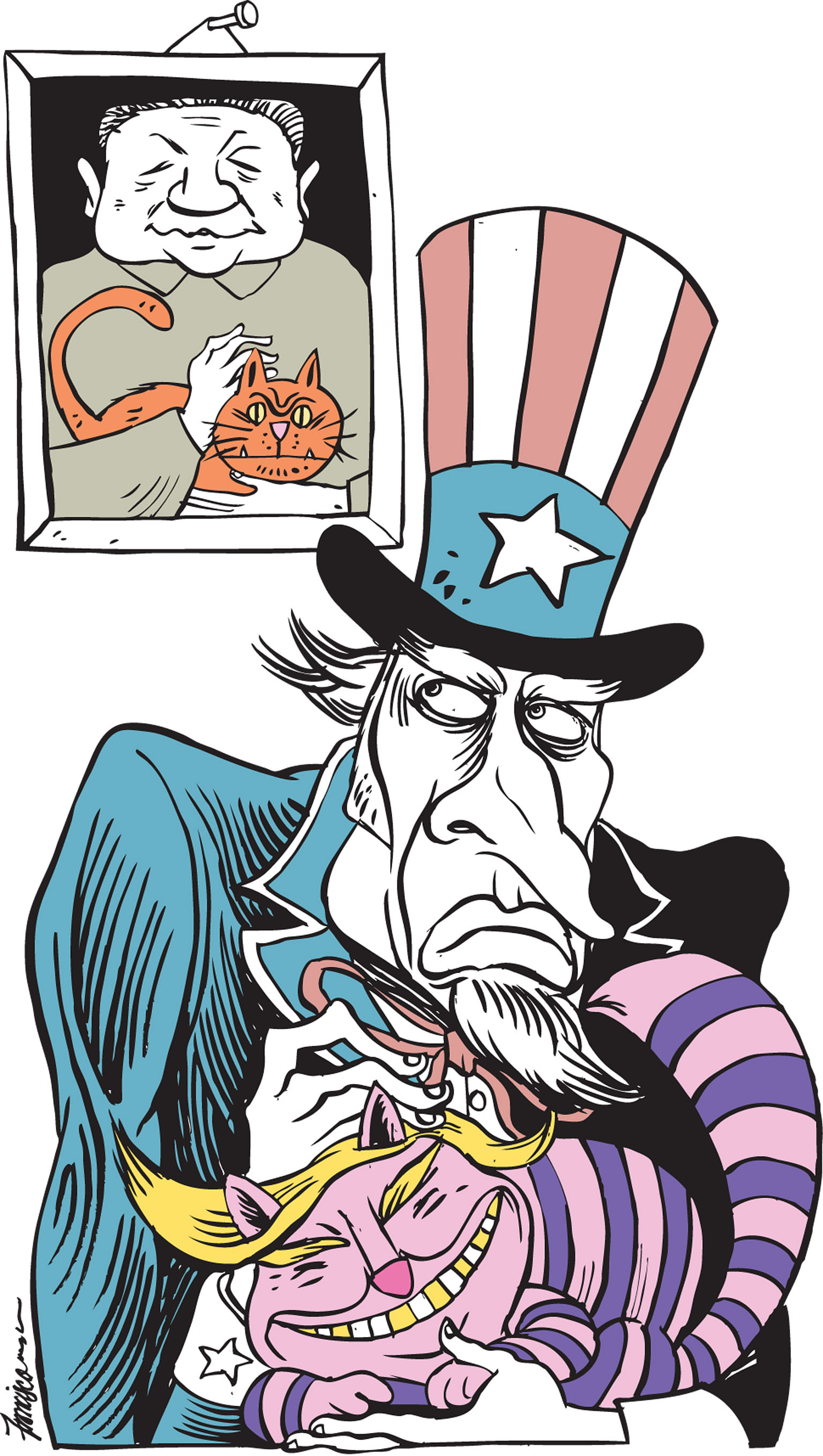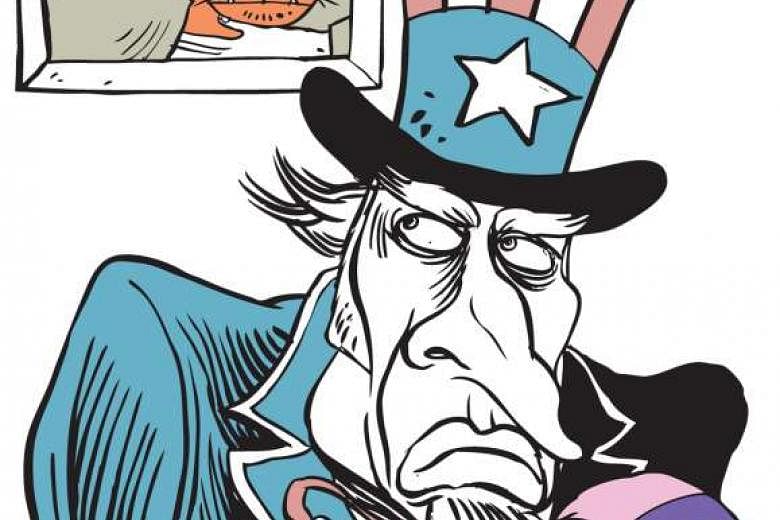If Deng Xiaoping, China's former supreme leader and the chief architect of China's modern-day pragmatism, were asked to comment on the election of Mr Donald Trump as the next United States president, he would simply quote himself: "It does not matter whether it is a black cat or a white cat, as long as it catches mice, it is a good cat."
He might further articulate what constitutes catching mice today for the American people. It means injecting new growth into the laggard economy so that the American pie is bigger and everyone in America is better off, like what has been happening in China for the last four decades.
It means calling the Islamist terrorist threat as it is and instituting the most effective security measures - whether those measures happen to unjustly hurt the feelings of a portion of the population or not - to minimise the chance of an attack on every American. It means a rational look at the trade-offs between protecting the environment for the long run and protecting traditional industries and jobs for the immediate term.
It means securing its borders, like any other normal country does, and adopting an immigration policy that attracts the best to come to this country, legally. It means a bold reset of the economic and political relationships between the US and the rest of the world, by maximising mutual interests and common pursuits and agreeing to disagree from time to time.
In Deng's pragmatic world, policy priorities are set because pros outweigh cons based on empirical modelling and statistical probabilities, and not because these priorities are ideologically purer or seemingly occupy some dubiously defined moral high ground.
Catching mice is doing business, not indulging sensibilities. For Deng, catching mice in America today would not even remotely involve clogging a significant bandwidth of the national discourse with how one should label toilets for transgender Americans. It does not mean the fight against global warming is a cause that - by definition, through a religion-like belief system and with absolute certainty - is under all circumstances superior to the fight for jobs for American people or the fight to have electricity in Africa.

Deng would not be surprised at all that Mr Trump got elected with 306 electoral votes in spite of his grave and sometimes deeply offensive personal flaws, because Mr Trump seems to be willing to entertain either a white or a black cat, to free himself and the country from much of the ideological baggage.
While Mr Trump, the Republican candidate, employs straight talk and appeals to common sense, the Democratic Party has over the years degenerated into a party that stands for "the sensibilities of a few". The party prioritises the sensibilities of a few against the tangible suffering of many or proven economic gravity. It occupies self-defined moral high ground, at the expense of dollars and sense.
This "party for the sensibilities of a few", through US President Barack Obama's directive this May which stipulated that public schools must permit transgender students to use toilets based on their gender identity rather than gender at birth, decided that the sensibilities of the fellow transgendered citizens, which account for 0.2-0.3 per cent of the total population, override the strong preferences of the majority of people who had assumed that in schools, their daughters should not have to see male genitals in the girls' toilets.
In China since 1976, Deng waved his economic magic to lift 600 million people out of poverty not through indulging anyone's sensibilities, not to mention those of only a few, but through nuts-and-bolts rational policymaking on the part of the rulers and sheer hard work and ambition on the part of the ruled.
After Deng is entirely un-surprised by Mr Trump's victory, he might look into the future and try to gauge what kind of America Mr Trump would lead the country to, and what that means to China. He has reasons to be curious and optimistic.
THREE AMERICAS
For China, there could be three Americas.
The first America does what it is not supposed to do. The second America does what it is supposed to do. The third America does neither and simply retreats.
In the first America, Mr George W. Bush started a war that has claimed 190,000 lives, cost over US$2.2 trillion and left a failed state behind, just to counter non-existent weapons of mass destruction in Iraq.
Also in the first America, Mr Obama launched his "pivot to Asia" even when there was no clearly defined objective to pivot for - unless the few rocks in the South China Sea are of such strategic importance to America - and no corresponding military resources nor the critical mass of reliable regional partners to pivot with.
In the second America which does what it's supposed to, Franklin D. Roosevelt entered World War II to defend America against the Japanese and to protect the freedom and humanity of the world. In the third, retreating, America, it failed to join the League of Nations.
While Deng would not know for sure which America would materialise on the global stage under Mr Trump, he can safely assume that the latter is less likely to take the country into situations where he does not see a clear case for American interventions.
Therefore, on Jan 20, the chance for the first America, where the policies towards China would be driven by irrational sensibilities and ideological pettiness, will be lower than under Mr Obama or Mrs Hillary Clinton.
Deng would welcome both the second and the third Americas. In the third scenario, America retreats and there would be a bigger space for China to play, if China chooses to. But to think that China is simply counting on America to retreat misses the real potential.
Deng, who valued substance over ideology, famously claimed that he did not care whether "the last name of a policy is communism or capitalism". From that perspective, Mr Trump may be a counterpart China finds palatable, more likely to talk business rather than to argue about ideology.
A China that sees many common interests with America, and very narrowly defines its small set of "core interests", is much more likely to collaborate with Mr Trump's second America that makes decisions based on rational pursuit of self-interests.
At the China Development Forum in Beijing this March, I took away two comments. Former treasury secretary Robert Rubin over his lunch address mused about whether there would ever be a worthy counterpart in the White House who could match the strengths of decision-makers in Zhong Nan Hai, the seat of imperial, and now communist, China. Venture capitalist Peter Thiel marvelled about the rational policy thinking he saw with China, compared to the do-nothing attitude of Western politicians.
If Mr Trump abandons some of the hyperboles he liberally employed as campaign tactics - which he has started to do, for example, on the 45 per cent tax on Chinese imports - and pursues domestic and international policies based on common sense and rational interests, by next March when we gather in Beijing again for another China Development Forum, China and the US may have entered into a new and more fruitful relationship; Mr Rubin may have found a good answer to his question; and Mr Thiel may well have helped Mr Trump to catch a few more mice.
- Kevin Lu is a partner and member of the Global Executive Board of Partners Group, a Swiss private equity firm. He is the head of Partners Group's Singapore office. He is also a Distinguished Fellow at Insead.

